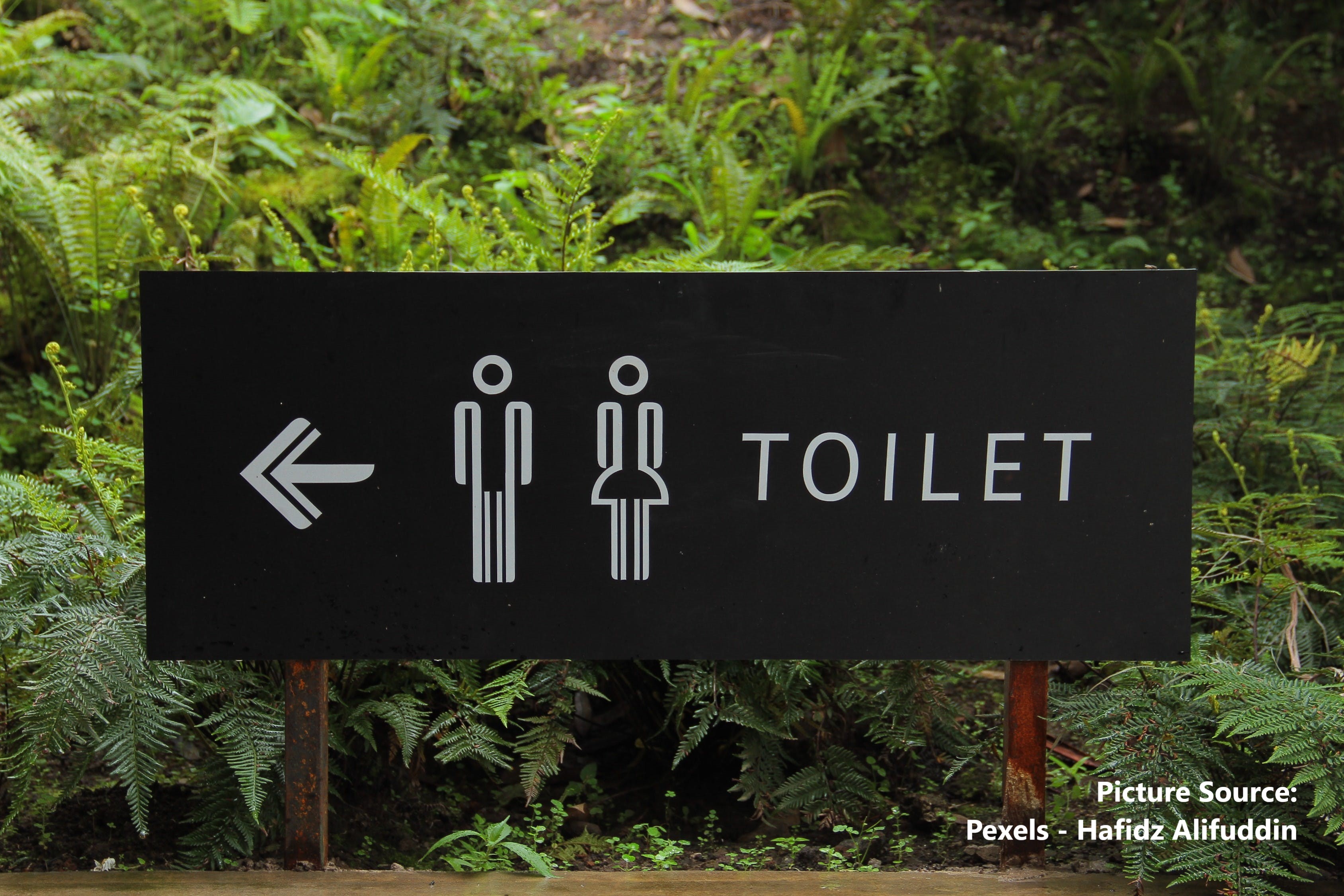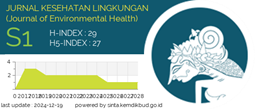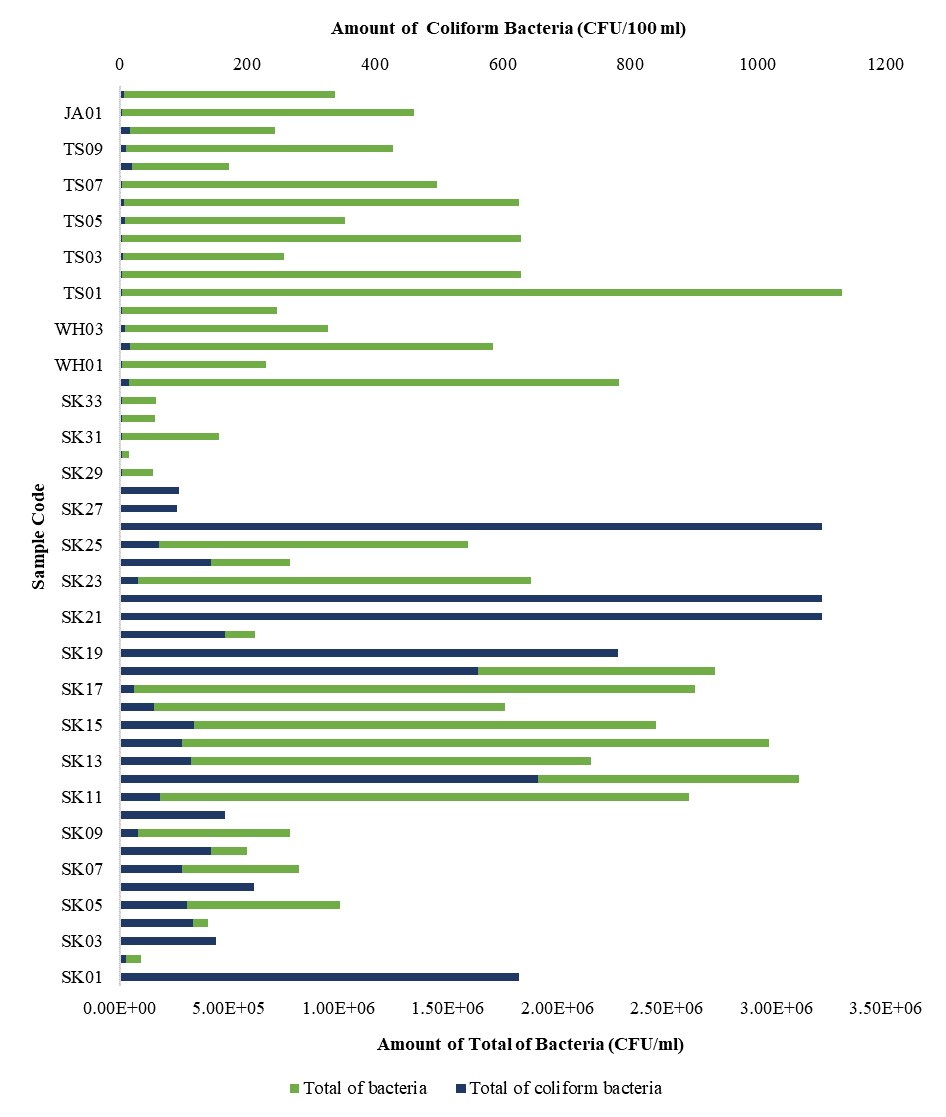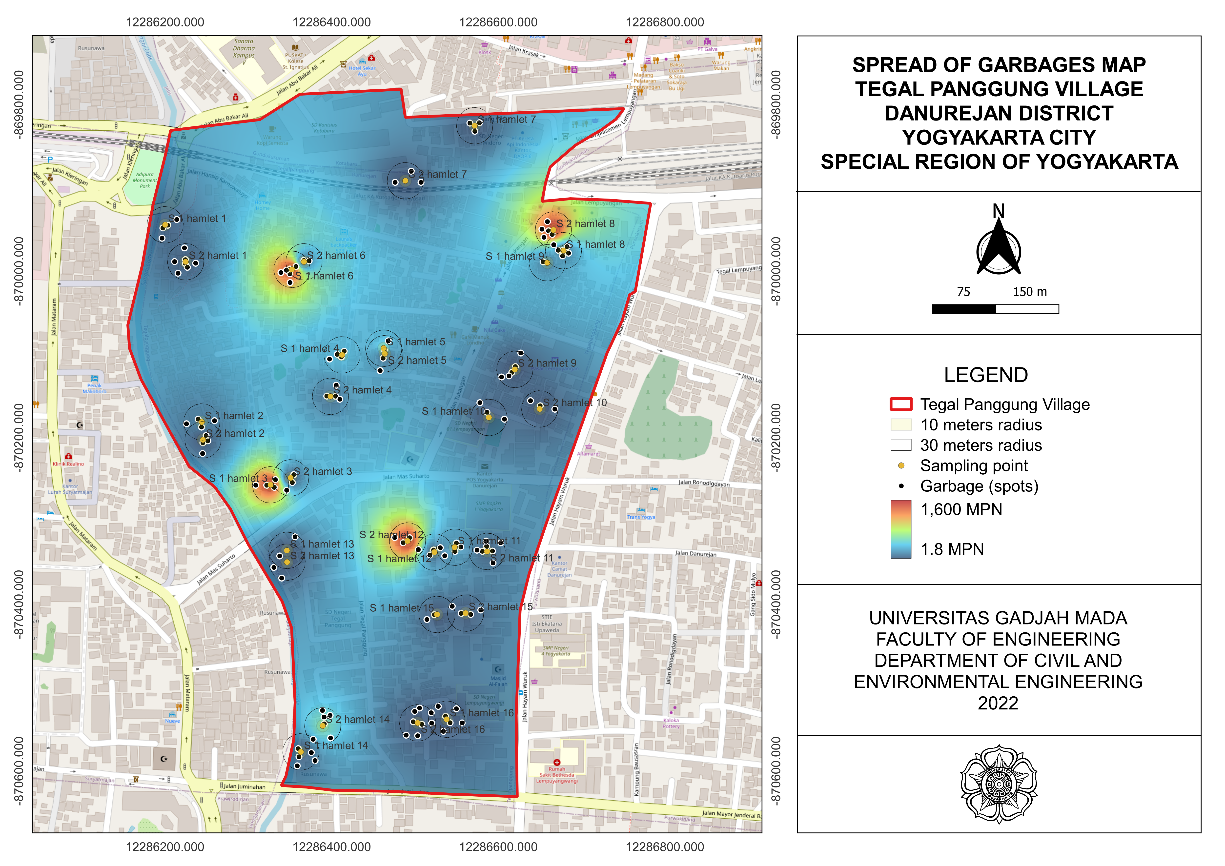The Readiness of Wonosobo and Banjarnegara Towards Open Defecation Free Regencies

Introduction: Open defecation is defined as the practice of defecating in fields, forests, bushes, rivers, beaches, or other open areas, causing soil, water, and air contamination. This can cause environmental pollution and diseases (diarrhea and pneumonia, etc.). Banjarnegara and Wonosobo are the two districts with the lowest percentages of Open Defecation Free (ODF) in Central Java. This study aimed to determine the readiness of Banjarnegara and Wonosobo to become ODF regencies. Methods: This descriptive study used a qualitative approach. Data collection was conducted through Focus Group Discussions (FGD) with policy actors responsible for accelerating ODF in Wonosobo and Banjarnegara. Results and Discussion: This study found that Wonosobo and Banjarnegara were constrained by five issues: policies/regulations and strategies, institutional arrangements, financing, planning and monitoring, and capacity building. A situation analysis involving the Working Group on Housing and Settlement Areas (Pokja PKP) for Wonosobo and Banjarnegara found the ODF's main obstacles, namely coordination and commitment (supply), and community behavior (demand). Conlusion: The readiness of Wonosobo and Banjarnegara as ODF regencies needs to be reviewed, especially the commitment of regional leaders to institution-strengthening policies and public education.
Ministry of Health Republic of Indonesia. Regulation of Ministry of Health Republic Indonesia No. 21/MENKES/2020 about Ministry of Health Strategic Plan For 2020-2024. Jakarta: Ministry of Health Republic of Indonesia; 2020
Risandewi T, Widiastuti W. Penelitian Strategi Penguatan Kerjasama Kebijakan Pembangunan Pariwisata di Jawa Tengah (Studi Kasus Kspn Dieng Dan Sekitarnya). Jurnal Litbang Provinsi Jawa Tengah. 2019;17(2):117–131. https://doi.org/10.36762/jurnaljateng.v17i2.792
Puspitasari D, Nasiatin T. Faktor-Faktor yang Berhubungan dengan Perilaku Buang Air Besar Sembarangan (BABS). Jurnal Bahana Kesehatan Masyarakat. 2021;7(2):621–631. https://doi.org/10.35910/jbkm.v5i1.331
Okuku MO. Policy Brief: Ending Open Defecation in Nigeria. International Journal of Tropical Disease & Health. 2020;41(19):47–54. 10.9734/IJTDH/2020/v41i1930387
Surya J. Sanitasi Total Berbasis Masyarakat ( STBM Dengan Diare Pada Balita Metode Hasil Dan Pembahasan. Jurnal Ilmiah Kesehatan Sandi Husada. 2019;10(2):281–284. 10.35816/jiskh.v10i2.169
Njuguna J. Progress in sanitation among poor households in Kenya: Evidence from demographic and health surveys. BMC Public Health. 2019;19(135):1–8. https://doi.org/10.1186/s12889-019-6459-0
Hayana H, Marlina H, Kurnia A. Relationship Between Individual Characteristics and Social Environment to Behavior Open Defecation. Jurnal Kesehatan Komunitas. 2018;4(1):8–15. https://doi.org/10.25311/keskom.Vol4.Iss1.195
Utami FW, Putriani YE. Gambaran (Open Defecation Free) ODF di Kabupaten Mojokerto. Wiyata. 2019;6(2):128–134. http://dx.doi.org/10.56710/wiyata.v6i2.297
Kasanah SU. Upaya Mewujudkan Desa Open Defecation Free di Desa Pojok Kecamatan Garum Kabupaten Blitar. BRILIANT Jurnal Riset dan Konseptual. 2018;3(3):354–364. https://doi.org/10.28926/briliant.v3i3.209
Ahmadi, Saputra R, Aziz UK. Analisis Status Open Defecation Free (ODF) Terhadap Ketersediaan Lahan dan Status Ekonomi di Kecamatan Sagulung Kota Batam. Jurnal Kesehatan Ibnu Sina. 2021;2(1):1–7. https://doi.org/10.36352/j-kis.v2i01.109
Ruba YE, Joko T, Budiyono. Faktor Pendukung dan Penghambat Program Stop Buang Air Besar Sembarangan ( BABS ) di Wilayah Kerja Puskesmas Maronggela Kecamatan Riung Barat Kabupaten Ngada. Jurnal Riset Kesehatan Masyarakat. 2021;1(2):1–11. https://doi.org/10.14710/jrkm.2021.13315
Indah FPS, Ismaya NA, Puji LKR, Hasanah N, Jaya FP. Penerapan Program Sanitasi Total Berbasis Masyarakat (STBM) dengan Kejadian Diare pada Balita. Jurnal Ilmiah Kesehatan. 2021;20(1):10–15. 10.33221/jikes.v20i1.596
Kafle S, Pradhan B. Situation of Water, Sanitation and Hygiene and Diarrhoeal Disease After Open Defecation Free Declaration and Associated Factors of Makwanpur District, Nepal. Journal of Nepal Health Research Council. 2018;16(39):160–164. 10.3126/jnhrc.v16i2.20303
Muhid A, Sumarkan, Rakhmawati, Fahmi L. Perubahan Perilaku Open Defecation Free (ODF) melalui Program Sanitasi Total Berbasis Masyarakat (STBM) di Desa Babad. Engagement Jurnal Pengabdian Kepada Masyarakat. 2018;2(1):99–119. https://doi.org/10.29062/engagement.v2i1.27
Abidin A. Implementasi Kebijakan Program Gerakan Sanitasi Total Berbasis Masyarakat (STBM) Pilar 1 Dalam Pengendalian Lingkungan Masyarakat di Indonesia. Cerdika Jurnal Ilmiah Indonesia. 2021;1(2):64–71. https://doi.org/10.59141/cerdika.v1i2.7
Wonosobo Regent Regulation. Wonosobo Regent Regulation No 4 of 2022 concerning Guidelines for Providing Special Financial Assistance to Village Governments. Wonosobo: Wonosobo Regent Regulation; 2022.
Sugiharto M, Nurhayati N. Mewujudkan Desa ODF (Open Defecation Free) Melalui Kegiatan Inovatif di Kabupaten Muaro Jambi, Sumedang dan Lombok Barat. Buletin Penelitan Sistem Kesehatan. 2019;22(1):62–71. https://doi.org/10.22435/hsr.v22i1.855
Naelana Y, Istiyanto SB. Implementasi Program Daerah Pemberdayaan Masyarakat (PDPM) Dalam Mewujudkan ”Kabupaten Tegal Open Defecation Free 2019”. Jurnal Tabligh. 2019;20(1):106–125. https://doi.org/10.24252/jdt.v20i1.9604
Ayalew AM, Mekonnen WT, Abaya SW, Mekonnen ZA. Assessment of Diarrhea and its Associated Factors in Under-Five Children Among Open Defecation and Open Defecation-Free Rural Settings of Dangla District, Northwest Ethiopia. Journal of Environmental and Public Health. 2018;2018(4271915):1-8. https://doi.org/10.1155/2018/4271915
Prayitno J, Widati S. Kajian Strategi Promosi Kesehatan Sanitasi Total Berbasis Masyarakat (STBM) di Kelurahan Kejawan Putih Tambak Kota Surabaya. Jurnal Kesehatan Lingkungan. 2018;11(3):267–274. https://doi.org/10.20473/jkl.v10i3.2018.267-275
Andriani K, Susilawati. Pengelolaan Sanitasi Stop BAB (Buang Air Besar) pada Wilayah Pesisir Pantai Pandan Sibolga. JOSR Journal Social Research. 2022;1(8):785–790. https://doi.org/10.55324/josr.v1i8.161
Gusti A, Helmidawati H, Azkha N. Determinan Perilaku Buang Air Besar Sembarangan di Nagari Sun Datar Kabupaten Pasaman Provinsi Sumatera Barat. Jurnal Ilmu Kesehatan. 2021;20(3):92–96. https://doi.org/10.33221/jikes.v20i3.1303
Sari NP, Susanti. Kebiasaan Buang Air Besar Sembarangan (BABS) di Desa Tanjung Peranap, Tebing Tinggi Barat. Jurnal Kesehatan. 2021;9(2):101–106. https://doi.org/10.25047/j-kes.v9i2
Hidayat DM, Sujaya IN. Hubungan Pengetahuan dan Sikap Dengan Perilaku Buang Air Besar Sembarangan Masyarakat Desa Sumberwaru Kecamatan Banyuputih Kabupaten Situbondo Tahun 2021. Jurnal Kesehatan Lingkungan. 2022;12(1):17–25. https://doi.org/10.33992/jkl.v12i1.1930
Meilana HA, Wijayanti Y. Faktor yang Berhubungan dengan Perilaku Buang Air Besar pada Masyarakat Wilayah Kerja Puskesmas. Indonesian Journal of Public Health and Nutrition. 2022;1(3):319–328. https://doi.org/10.15294/ ijphn.v2i3.54967
Kasanah SU. Upaya Mewujudkan Desa Open Defecation Free di Desa Pojok Kecamatan Garum Kabupaten Blitar. Briliant Jurnal Riset dan Konseptual. 2018;3(3):354-363. https://doi.org/10.28926/briliant.v3i3.209

This work is licensed under a Creative Commons Attribution-NonCommercial-ShareAlike 4.0 International License.
1. Copyright of all journal manuscripts is held by the Jurnal Kesehatan Lingkungan.2. Formal legal provisions to access digital articles of electronic journal are subject to the provision of the Creative Commons Attribution-ShareAlike license (CC BY-NC-SA), which means that Jurnal Kesehatan Lingkungan is rightful to keep, transfer media/format, manage in the form of databases, maintain, and publish articles.
3. Published manuscripts both printed and electronic are open access for educational, research, and library purposes. Additionally, the editorial board is not responsible for any violations of copyright law.
JKESLING by UNAIR is licensed under a Creative Commons Attribution-ShareAlike 4.0 International License.







































